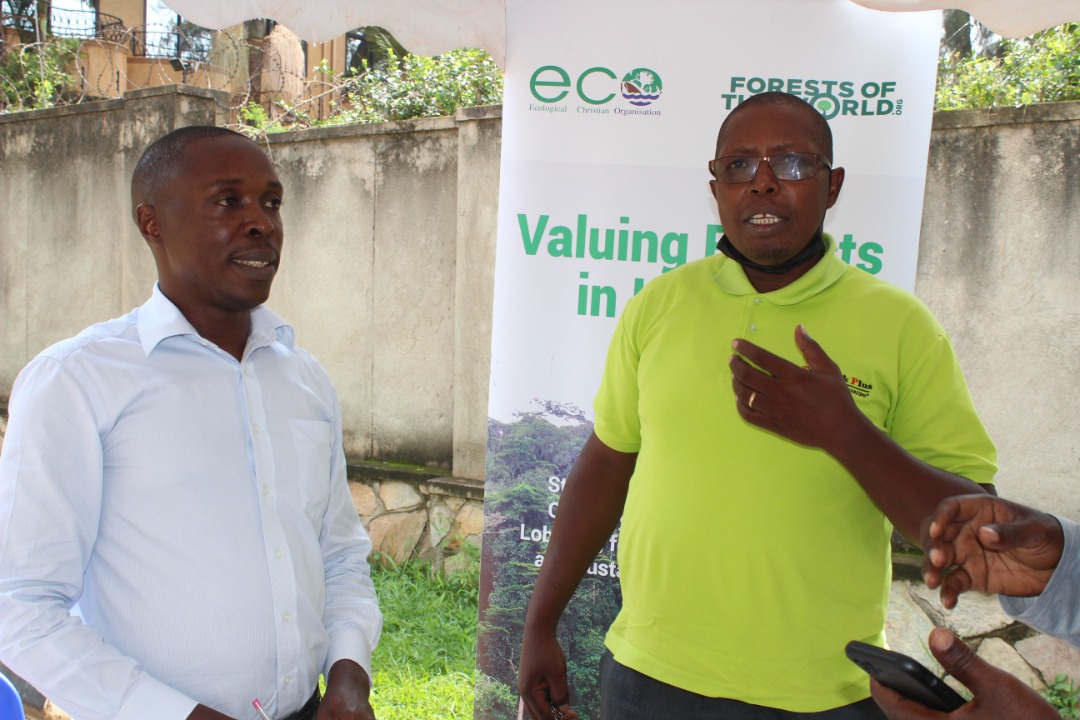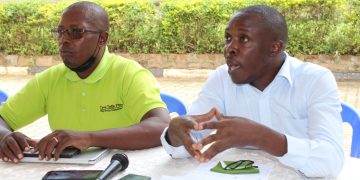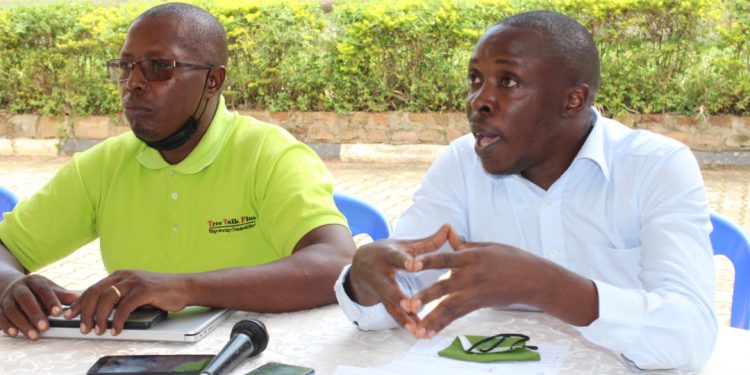Members of the Uganda Forestry Working Group led by Ecological Christian Organisation (ECO) have appealed to government to speed up the Forest Policy review process which has been long overdue.
Addressing the media at ECO Head offices in Kampala, Anthony Wolimbwa a Programs Officer at ECO noted that the forestry policy in Uganda has a long history, 1900, 1929, 1988, 2001 and all have played a part during their tenure at a time when forestry was at infancy.
“It’s now 20 years since the policy was put in place, several changes and developments have taken place requiring that the State to revisits the policy, plan and the law. Government of Uganda has started the process for reviewing the policy and it is necessary that CSO debate issues to be included in the law,”
Wolimbwa noted that a process for the review started in 2015 and over time, a lot has been identified which include; the dwindling status of Uganda’s forest resources, decline of the forest resource base, need to improve the wood industry, the need to emphasize forestry extension and advisory services among others.
Gaster Kiyingi, a member of the Uganda Forestry Working Group highlighted that there are a number of challenges that have led to the above conditions and have paused a delay in the review process.
“These challenges include; Corruption which is a big cancer, eating at the very core of society and therefore presents governance challenges, the consultation process is expensive and therefore not many stakeholders will present their views, inadequate financing to undertake comprehensive consultations,” Kiyingi said.

Kiyingi noted that the group has thus highlighted a number of proposed changes for review which they think will help better the sector. These include;
- a) Climate change – especially the GHG emission from deforestation and forest degradation.
- b) Drivers of deforestation and forest degradation – the quality and quantity of the forests and trees needs to improve going f The underlying causes of deforestation and forest degradation should be addressed, and include the following:
- Land and forestry tenure (for small landholders, community forest, private forests and
government);
- Private sector engagement in private forestry (including clearing forested land for plantation establishment).
iii. Biomass energy development and utilization, particularly charcoal and firewood, need
mechanisms for efficient technologies and practices for use.
- c) Forest certification and forest valuation – valuing Uganda’s forest estate is a requisite to natural capital accounting. Certifying Uganda’s forest estate will enhance sustainable forest management.
- d) Carbon tenure and benefit sharing from carbon trade.
- e) Institutional framework and performance, accountability and coordination mechanisms during REDD+ implementation.
- f) Forestry governance principles (stakeholder engagement, grievances redress mechanisms, integration of social, and environmental safeguards).
- g) Forestry sector responses to macro-economic policy and frameworks (NDPII, Green Growth Strategy).
- h) Forestry education and training to meet professional market demands – forestry training institutions need to offer relevant courses.
- i) Gap in regulation of private forests, charcoal production and trade, timber trade, benefit sharing, carbon trade and the laws at lower levels such ordinances and bye laws are nonexistent.
- j) Incentives to support sustainable forest management at communal and private forests.
- k) The forest sector needs to review of the institutional framework to enhance coordination and collaboration.
- l) Land tenure, and land allocation systems for land under CFRs and NPs need policy review to ease procedures for land access.









